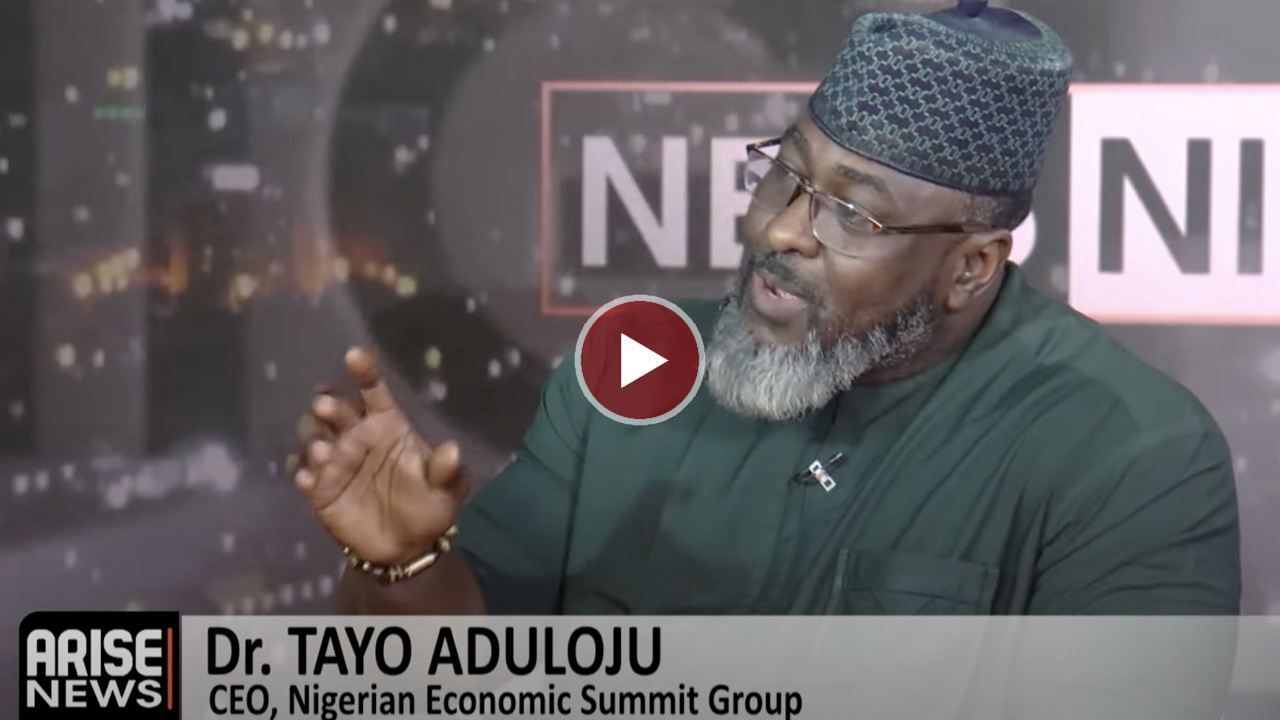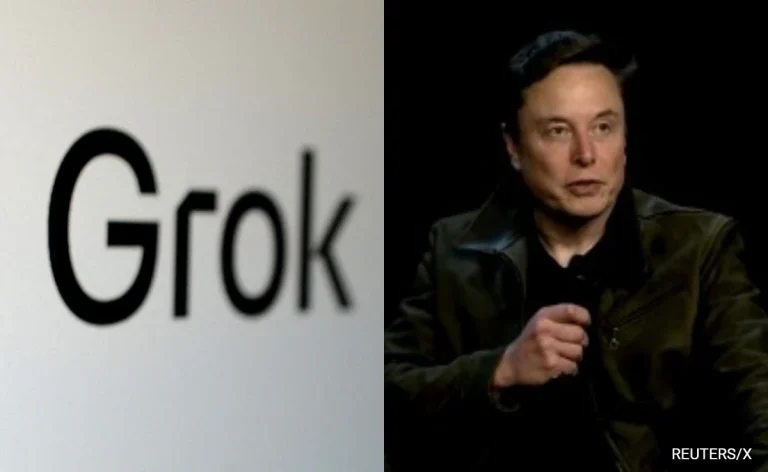

The Chief Executive Officer of the Nigerian Economic Summit Group (NESG), Dr. Tayo Aduloju, has said that Nigeria’s economic growth must go beyond gross domestic product (GDP) figures to encompass diversification, technological advancement, and human competitiveness if the country is to build a prosperous and inclusive economy by 2030.
Speaking during an interview on Arise News on Sunday ahead of the 31st Nigerian Economic Summit themed “A Reform Imperative: Building a Prosperous and Inclusive Nigeria by 2030,” Dr. Aduloju explained that the summit would focus on shaping actionable policies for sustainable growth through five key pillars — industrialisation, investment, institutional strengthening, inclusion, and trade competitiveness.
“When you think of what makes a nation competitive, people often discuss economic growth in terms of GDP size and growth rate,” he said. “But at this summit, we’re discussing growth with depth. Growth must have diversification, technology upgrades, and human impact. It must go beyond oil-based earnings to build human competitiveness and solve for inclusion.”
Dr. Aduloju said the first pillar, industrialisation is aimed at transforming Nigeria’s natural endowments into national competitive advantages.
“You cannot be wasting tomato harvests in Katsina, exporting crude oil and importing refined products, or losing 70% of vegetables post-harvest while under-cultivating 60% of your arable land. That’s not productivity,” he said. “We have to industrialise by backward integrating and producing complex products with higher value addition.”
On investment, he emphasised the need for a friendly business environment to attract and retain capital inflows necessary for the government’s vision of a $1 trillion economy.
“To achieve that, Nigeria must attract between $10 to $15 billion annually for the next five years,” he noted. “Big money goes where it’s treated well. How we treat landmark investors like those behind the Dangote Refinery determines whether others will come. A stable regulatory environment, investor protection, and aftercare are vital to inspire confidence.”
Dr. Aduloju warned that domestic investors’ experiences shape foreign perceptions of the Nigerian market.
“International investors first look at how domestic investors are treated. If you mistreat your own, outsiders will be reluctant. Most of Nigeria’s assets are trapped by regulatory and vested interest challenges. We invest huge sums in assets like refineries, rail, and airports, but they fail to yield returns. Economic transformation comes when national assets rise to higher productivity.”
He further stressed the importance of institutional capacity, saying strong regulators are essential for developing markets that can scale efficiently.
“Regulators in a transformative economy must focus on building and deepening markets,” he explained. “The more efficient the regulator, the more transformative the market.”
On inclusion, Dr. Aduloju argued that true growth must create jobs, reduce poverty, and address inequality.
“You don’t achieve inclusion by merely carrying people along; you achieve it when growth creates jobs and lifts people out of poverty,” he said. “Nigeria once had double-digit GDP growth driven by the oil boom, but it was jobless growth. We were growing but exporting jobs because local capacity was not being built.”
He revealed that the summit would also engage with “middle-power nations” such as Mexico and Indonesia to draw lessons from their experience in industrialisation and private-sector competitiveness.
“Countries don’t compete globally — businesses do,” Dr. Aduloju explained. “It’s your Dangote, your Innoson, and your local conglomerates that compete around the world. If you kill them at home, you lose globally. The secret of competitiveness is for policy and reform to confer on domestic businesses the right to win.”
Citing Nigeria’s telecommunications revolution as an example, he said sound policy and reform could transform dormant sectors into growth drivers.
“Think of telecommunications,” he said. “We moved from less than 0.1% tele-density to almost 100% in two decades through policy reform. That’s what the GSM revolution did — it created opportunities for investors to win, expanded access, and allowed regulators to guide growth. That’s the model we need to replicate.”
Dr. Aduloju concluded by warning that economic growth without job creation is unsustainable.
“Jobless growth means you’re exporting jobs,” he said. “That happens when you’re not building local capacity. Real reform must ensure that every phase of Nigeria’s growth creates value and opportunities for its people.”
Boluwatife Enome



